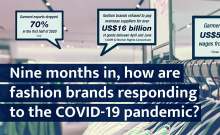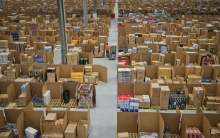There were audible sighs of relief from the country's burgeoning organic export market with the signing of the Brexit trade deal on Christmas Eve, meaning that the EU would recognise the UK's organic certification standards.
The Fairtrade movement was similarly relieved with the signing of the deal. A no-deal scenario would have led to tariffs on a wide range of Fairtrade goods, with producers in countries ranging from Nicaragua to Ghana ultimately picking up the tab.
The UK's electric car industry was reassured that they'd escaped being clobbered by tariffs, although they now face a frantic three-years to source all their batteries from either within the UK or the EU to avoid being slapped with tariffs on all exports.
However, it’s hundreds of small, pioneering companies that make up the majority of the UK's thriving ethical business community who say they are now taking a direct Brexit hit.
Pushing up costs
“It's a nightmare,” states Kiran Tawadey. As the founder of Hampstead Tea, one of the UK's leading ethical tea companies, Tawadey says she is facing the brutal reality of Brexit and its mountain of additional bureaucracy and costs, a situation confronting all the small ethical businesses contacted by Ethical Consumer.
“The new red tape and additional costs will amount to somewhere between £70,000 to £100,000 a year, which of course eats into our profit margin,” says Tawadey whose business is now booming across Europe which represents 30% of her total market:
While some companies will happily pass the bill on to suppliers, Tawadey says, “We would never push these costs back onto our supply chain. We're an ethical business and we work in partnership with our suppliers with whom we have a long-term relationship.”
Susie Hewson who runs Natracare which makes ethical sanitary products has also found that Brexit is resulting in mounting extra costs and paperwork:
“At a stroke Brexit has added around 14% to our costs and we've had to train two more staff just to process VAT across the EU every year,” says Hewson.
“Our fear is that our European customers will think that it's too complicated to work with the UK and will look elsewhere,” says Hewson who currently relies on the EU for 45% of her business.
“We're now doing everything we can to make it easy for our existing retail and distributer customers to see no change in the trading.”
To this end Hewson has already had to open an office in Dublin to comply with EU regulations around medical devices and cosmetics, plus she's just had to open a warehouse in the Netherlands to handle her deliveries across the EU.
Supporting workers
Despite these extra costs, Hewson has made a commitment to keep the workers engaged in her UK warehousing operations.
“As an ethical business we have a responsibility to ensure that our employees keep their jobs and are well paid,” says Hewson.
“However I can guarantee that there will be companies who'll be making the opposite decision by saying that the new arrangements aren't working so will lay off their UK workers.”
Tawadey is dismissive of Brexit's cheerleaders who claim that the additional red tape is little more than bumps in the road as a consequence of leaving the EU.
“These aren’t bumps in the road, they are permanent obstacles to trading with the EU for small and medium enterprises,” replies Tawadey.
“Big businesses will always come out OK as they have the resources to adapt and can throw money at finding solutions. It’s the smaller businesses like ours that are most affected.”








